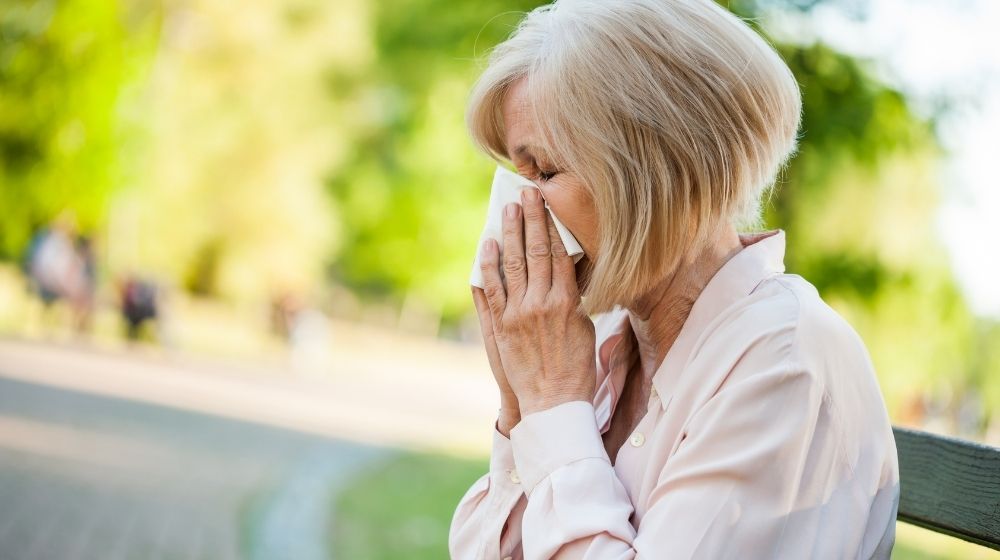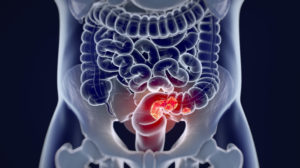Epigenetics allows us to understand better medical conditions, including allergies. Read on to learn more about the link between allergies and epigenetics.
RELATED: Cancer Epigenetic Driver Mutations in ARID1A
In this Article:
- Allergies and the Evolving World
- Changes in Pollen
- The Trouble with Allergies
- The Epigenetics of Allergies
- What to Avoid
What You Need to Know About Allergies and Epigenetics
Allergies and the Evolving World
In the last few decades, there has been a rise in asthma and hay fever cases. The Centers for Disease Control and Prevention (CDC) reports that over 19 million adults in America struggled with hay fever and other allergies in 2018.
This is also true for other types of allergies. For example, peanut allergy cases tripled between 1997 and 2008. One study predicts that over half of all Americans will have an allergic episode within their lifetime.
Interestingly, it doesn’t seem like allergies were always this problematic. In fact, before the industrial revolution, there was very little mention of allergies at all.
So what happened? Why are more and more people struggling with allergies? Some experts point to climate change.
What is climate change? Climate change is the unnatural shift in climate patterns that is due to the increased levels of atmospheric greenhouse gases, such as carbon dioxide and methane. These factors lead to significant changes in weather patterns that impact the pollen seasons and amount of pollen produced.
Climate change isn’t just changing the landscape of the world, but it also has an impact on health. Among other health issues, researchers believe that it’s also a driver in the rise of allergy cases.
It creates a toxic environment that can trigger an increase in certain allergens. For example, there’s evidence showing that global warming may have an impact on pollen production.
Pollen is one of the most common allergens. It’s one of the primary causes of hay fever or allergic rhinitis.
Some researchers predict that by 2040, pollen production will double. While weather changes may affect pollen production to a certain extent, studies show that air pollution may play a larger role. Studies link an increase in pollen levels to rising carbon dioxide levels—a byproduct of vehicle emissions and industrial waste.
Changes in Pollen
Apart from an increase in pollen production, pollution also changes the pollen itself. Studies show that chemical air pollutants interact with pollen grains to make them more allergenic.
Not only do these chemical air pollutants facilitate pollen allergen release, but they can also enhance the expression of allergens in pollen grains. So climate change doesn’t only increase the levels of allergens, but it can also change the toxicity of the allergens themselves.
The Trouble with Allergies
Allergies can significantly interfere with your quality of life. For example, allergic rhinitis symptoms usually include:
- Runny nose
- Nasal congestion
- Itchy eyes
- Sneezing fits
- Cough
- Itchiness in nose, throat, and mouth
- Postnasal drip
- Fatigue
These symptoms may seem minor, but over time they can impact an individual’s daily life. Here are a few examples of their detrimental effects:
- Impairs school performance
- Decreases work productivity
- Impairs driving abilities
- Compromises sleep quality
Allergic rhinitis can impair overall cognitive function. Apart from minimizing allergen exposure, doctors typically prescribe an antihistamine to treat allergies.
Unfortunately, antihistamines have several side effects, and most doctors prescribe low doses for a short period. So it’s important to learn more about allergies so researchers can develop better treatment protocols.
RELATED: Pregnancy May Switch Off Cancer Genes In Mother
The Epigenetics of Allergies
Epigenetics is a field that focuses on gene expression. Researchers in this field study the chemical tags and mechanisms across the genome that regulates DNA activity. They also look into the heritable changes in gene expression.
Epigenetic mechanisms like DNA methylation, histones modification, and noncoding RNAs can affect gene transcription and even induce gene silencing. Epigenome changes through these mechanisms can have an impact on the healthspan.
Examining these changes allows to better understand the processes involved in aging and medical conditions—including allergies. Here are some things we know about allergies because of epigenetics:
- Exposure to environmental pollutants triggers a change in inflammatory gene transcription. In some cases, it reduces the efficacy of anti-inflammatory therapies. These pollutants include tobacco smoke and traffic-related pollutants.
- Sticking to a Mediterranean diet during their pregnancy reduces the risk of allergies and asthma for their child.
- Higher intake of vitamin D during pregnancy may reduce the risk of wheezing in children.
- Like peanut allergies, food allergies are linked to certain histone modifications that occur as the embryo develops.
- There are localized sites on the genome that are linked to certain allergy pathways. Animal studies show that histone modifications and DNA methylation in these sites can change specific allergy symptoms.
- Other animal studies show that increasing DNA methylation in certain sites can increase allergen presentation. These epigenetic mechanisms can be passed on to the offspring.
- Researchers identify certain biomarkers that can predict specific allergic phenotypes like asthma. Regulating these biomarkers is a potential treatment for allergies.
These findings show that there are environmental and lifestyle factors that change the epigenome. This, in turn, can activate allergy pathways.
What to Avoid
There’s very little you can do to change the structure and composition of DNA. But there are certain environmental and lifestyle changes you can make to improve your epigenome and reduce the risk of allergies.
There are several chemicals you can avoid to lower the risk of allergies. For example, you can try avoiding materials that use formaldehyde.
Formaldehyde is a strong-smelling adhesive. It’s often used in building materials.
Unfortunately, it’s also an irritant and allergen. Research shows that formaldehyde exposure from homes increases the risk of allergy in children.
Another chemical to avoid is triclosan. Triclosan is an ingredient in a variety of products meant to help prevent bacterial contamination.
You can find it in hand soaps, cosmetics, cleaning solutions, and even food packaging. Triclosan exposure increases the risk of allergic rhinitis, asthma, and even peanut allergies.
Apart from chemicals, you can make some dietary changes. Research shows that the regular consumption of fast food increases the risk of asthma symptoms in children. On the other hand, children who eat fruit regularly have a lower risk of developing allergies.
Researchers need to run more studies to understand better the link between the environment, allergies, and epigenetics. In the meantime, there are epigenetic applications that can help you optimize your healthspan today. Visit the TruDiagnostic website to learn more.
How do you cope with allergies? Please share your tips with us in the comments section below.
Up Next:





